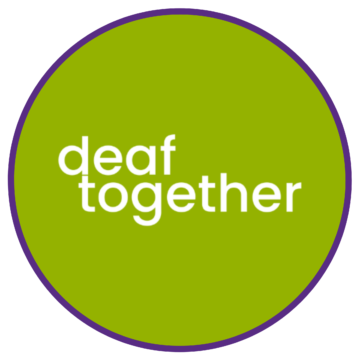On Friday 18 March 2022, MPs will debate the British Sign Language (BSL) Bill brought forward by Labour MP Rosie Cooper – as a Private Member’s Bill – for its third and final reading in the House of Commons. The British Deaf Association will hold a BSL Rally in Trafalgar Square on the same day to show the community’s support for the Bill and to celebrate Sign Language Week, which this year runs from 14-20 March.
If passed in the Commons, the BSL Bill will progress to the House of Lords, where it will be introduced by Lord Holmes of Richmond on 21 March. The Bill has so far progressed unopposed through previous parliamentary stages and has the support of the Government.
If the Bill passes into law, a BSL Act would mark a positive step forward for the Deaf community in Britain in terms of the recognition and wider public awareness of their language.
A BSL Act would: recognise British Sign Language as a language of England, Wales and Scotland; require the Secretary of State to report on the promotion and facilitation of the use of British Sign Language by ministerial government departments; and require guidance to be issued in relation to British Sign Language, setting out how government departments and public bodies must meet the needs of the estimated 87,000* Deaf people in the UK for whom BSL is a first or preferred language.
(The BSL Bill does not include provisions covering Northern Ireland, which is in the unique position of having two national sign languages – British Sign Language and Irish Sign Language – and is preparing to introduce its own BSL / ISL Bill through the NI Assembly.)
(*That number does not include hearing people who can sign, such as the family members, friends and colleagues of Deaf people, BSL interpreters, teachers of the Deaf, and so on. In total, it is likely that at least twice as many people in the UK are regular or fluent users of British Sign Language).
18 March 2022 is an important date for the Deaf community, as it marks exactly 19 years since the UK government first formally recognised BSL as a language in its own right, distinct from spoken English.
At that time, the government promised to look into the legal status for BSL, but it has not happened. As a result, Deaf people have continued for decades to struggle to access public services and information in British Sign Language.
Across the UK, we hear of examples every day of the communication barriers that Deaf people still face, such as:
- A school in West Sussex refusing to provide a BSL interpreter to a Deaf couple, the Fowlers, for parents’ evenings when their child started primary school. The school suggested the couple could use their four-year-old son as an interpreter instead.
- A London hospital refusing to provide a BSL interpreter to Deafblind father-to-be Ben Fletcher for his partner’s antenatal appointments and the birth of their child. The midwife suggested his partner could interpret for Ben while she was in labour.
- A concert promoter in West Sussex refusing to provide a BSL interpreter for three Deaf mothers accompanying their children to a Little Mix concert. The promoter eventually supplied an interpreter for the main act, but not for the support acts, denying the women the same experience as the hearing audience. The promoter was later forced by a court to pay £5,000 damages to each of the three women.
These are not isolated incidents. Rather, they are the norm for Deaf people in Britain in 2022. This is why a BSL Act is urgently necessary.
David Buxton, Chair of the British Deaf Association said:
“British Sign Language is Britain’s fourth indigenous language, after English, Welsh, and Scottish Gaelic. It is time for BSL be accorded the same status and legal protection.
“Nineteen years after the UK government first promised to investigate a legal status for BSL, Deaf people still have to fight every day for access to the same essential – sometimes lifesaving – information and services that are readily available to the hearing population.
“Police and courts in Britain are currently legally required to provide qualified BSL interpretation, while other public services such as health, education and social care do not have that requirement. As a result, they can – and often do – use the loophole of the “reasonable adjustments” described in the Equality Act to argue that it is not reasonable to have to provide a BSL interpreter. Instead, they ask Deaf people to use family members as unskilled, unqualified interpreters, or resort to a pen and paper, lipreading or no communication support at all.
“This Bill presents a real opportunity for change, to break down avoidable communication barriers and to give Deaf people and their language – BSL – the recognition, inclusion, and equality that they deserve.
“If the BSL Bill passes into law, we are ready to work hand-in-hand with the UK government to redesign public services that meet the unique needs of the 87,000 Deaf people who have British Sign Language as their first or preferred language.
“We also hope that the legal recognition of BSL will encourage many more people across the UK to learn British Sign Language and go on to become interpreters, bilingual professionals and allies of the Deaf community. BSL can bring us all together as a society.”
James Watson O’Neill, Chief Executive at SignHealth, said:
“This isn’t just about language, it’s about human rights and how we live as Deaf people – how we talk to our partners, how we care for our children and how we access healthcare. BSL is at the heart of Deaf culture and the BSL Act will help even more people see the value of Deaf people’s lives and give them equal standing.”
We are asking everyone to write to their MP asking them to support the third reading of the Bill on Friday 18 March, share stories of the challenges they may have faced due to lack of access to public services in BSL and raise awareness by sharing photos on social media with the hashtags #BSLBill and #BSLActNow.
During the debate on Friday 18 March, the British Deaf Association will hold a BSL Rally at Trafalgar Square for the Deaf community and their allies to celebrate national Sign Language Week and show their support for the BSL Bill.
The parliamentary third reading debate will be livestreamed on a large screen and a programme of high-profile speakers from the Deaf community (with BSL/English interpretation) is planned.
All are welcome to join the Rally between 11:30am and 2:30pm. (See further details in the Notes.)
ENDS
Notes to Editors
British Deaf Association (BDA)
The BDA is a Deaf people’s organisation run by Deaf people, for Deaf people. We represent a diverse, vibrant and ever-changing community of British Deaf people.
Our activities, promotions, and partnerships with other organisations aim to empower our community towards full participation and contribution as equal and valued citizens in the wider society. We also aim to act as guardians of British Sign Language. The BDA stands for Deaf Equality, Access and Freedom of choice.
For more information, see: www.bda.org.uk.
BSL Bill
The BDA launched the “BSL Act Now!” campaign on 18 March 2021 as part of Sign Language Week.
The campaign called for BSL users to write to their MPs, asking for them to introduce a BSL Bill should their name be drawn out of the Private Member’s Bill ballot. Nearly 90% of MPs received a letter from constituents who use British Sign Language.
In June 2021, Rosie Cooper’s name was drawn, and she confirmed she would take forward a BSL Bill.
Cooper’s parents were both Deaf and her first language was BSL.
For more information about the Bill, see: https://bills.parliament.uk/bills/2915.
BSL Act Now! Campaign
The BSL Act Now! Campaign has been set up and led by the British Deaf Association (BDA), which is working with several other Deaf charities and sector organisations whose purpose is to support the
Deaf community.
These organisations represent the diversity of the Deaf community in the UK. We are united in calling for a BSL Act to achieve legal status for British Language as the primary language of the Deaf community in the United Kingdom.
Achieving legal recognition of BSL through an Act of Parliament (a BSL Bill) in the UK would be a positive step forward in terms of improving Deaf people’s quality of life, their inclusion and autonomy in British society, educational and professional opportunities, and even their health outcomes.
The group are RNID, Royal Association for Deaf people (RAD), Signature, Institute of British Sign Language (iBSL), SignHealth, National Deaf Children’s Society (NDCS), National Register of Communication Professionals working with Deaf and Deafblind People (NRCPD), and Black Deaf UK.
For more information, see: https://bda.org.uk/bsl-act-now/.
BSL Rally, 18 March 2022
The BDA will hold a BSL Rally on Trafalgar Square from 11:30am – 2:30pm on Friday 18 March.
For more information available on the Facebook event.
Media outlets wishing to attend the BSL Rally are very welcome.
If you would like to conduct interviews with Deaf speakers or attendees at the Rally, you will need a British Sign Language (BSL) / English interpreter.
We have booked a small pool of BSL interpreters who will be available to work with media outlets. As we are a charity, we will ask media outlets to contribute towards the cost of interpretation.
If you would like to pre-book an interpreter for the BSL Rally, please contact Lauren Harris, PR & Communications Consultant, at the BDA (lauren.harris@bda.org.uk / 07861 035699).
Sign Language Week 2022
Sign Language Week is celebrated across the UK every year in March to coincide with the anniversary of the recognition of British Sign Language (BSL) by the UK Government in 2003.
Sign Language Week is an initiative of the British Deaf Association. This year’s Sign Language Week will run from 14 – 20 March 2022.
This year’s theme is “BSL Brings Us Together”. The campaign hashtags are #SignLanguageWeek, #SLWeek2022 and #BSLBringsUsTogether.
BDA are delighted that SignLive, the Video Relay Service (VRS) and Video Remote Interpreting (VRI) provider, will be our Headline Sponsor for Sign Language Week 2022.
For more information, see: www.signlanguageweek.org.uk.
SignHealth

SignHealth is the Deaf health charity. We are a passionate and caring Deaf-led team working towards a future where there are no barriers to good health and wellbeing for Deaf people. We partner with the NHS and service providers across the country. We are also one of the UK’s largest employers of Deaf people, and most hearing staff in our projects and services are fluent sign language users.
What is British Sign Language?
British Sign Language is a signed, visual language that uses hand and body movements as well as facial expressions and eye gaze to express meaning. It is a language in its own right with its own vocabulary and grammar. BSL is not dependent upon or related to English and is used mainly by people who are Deaf, their families and friends, and interpreters, teachers and other professionals
who work with Deaf people.
Sign Language is not international – there are hundreds of different sign languages around the world. For example, the sign languages used in Ireland and the USA developed separately from BSL, while Australian, New Zealand and South African Sign Languages are historically related to BSL.
Just as with spoken languages, there are regional variations or “accents” of BSL, although these are mutually intelligible. For example, the sign for ‘holiday’ which has around 10 -12 sign variations depending upon the area of the UK that you are in.
British Sign Language is a natural, living language that is part of a rich cultural heritage of the British Deaf community and one of the UK’s indigenous languages.
ENDS





